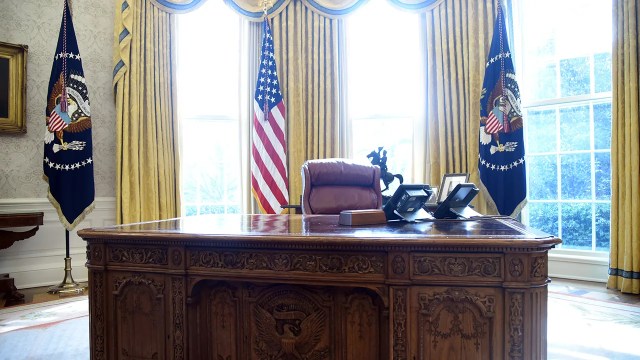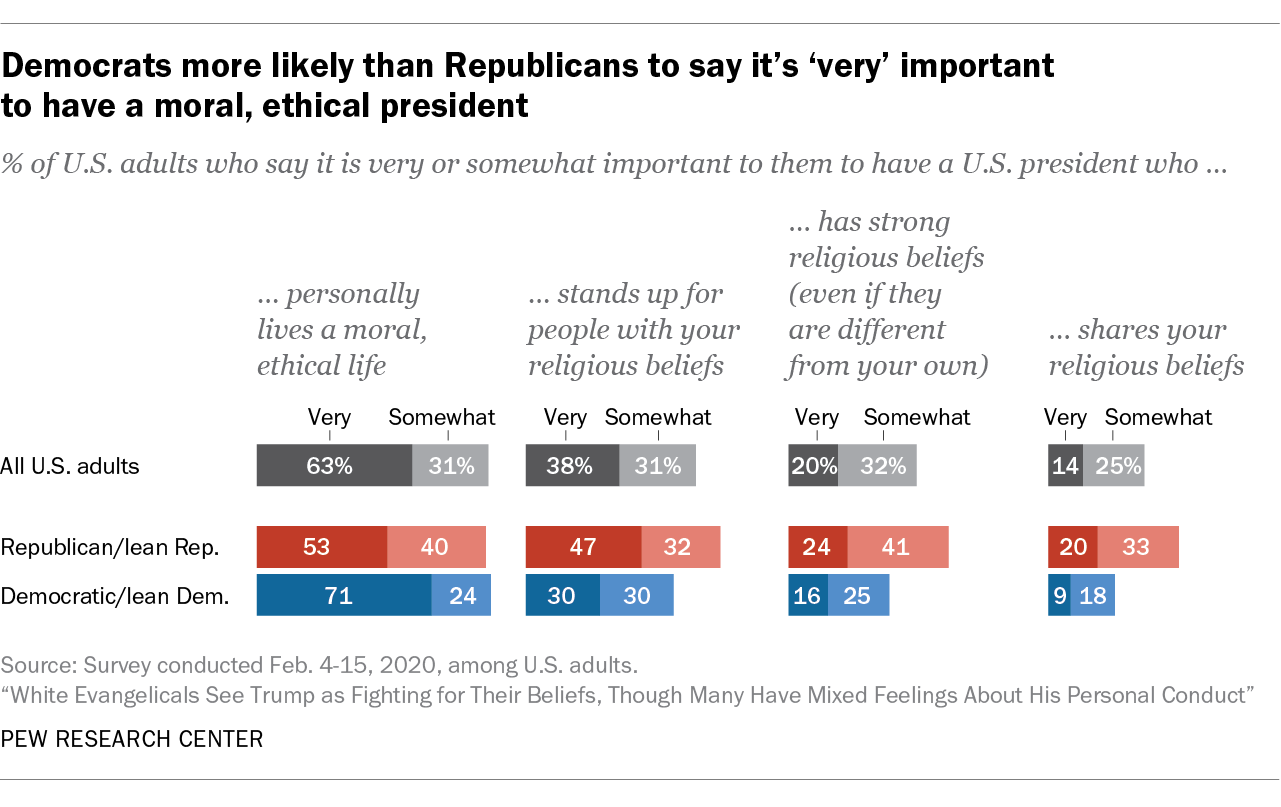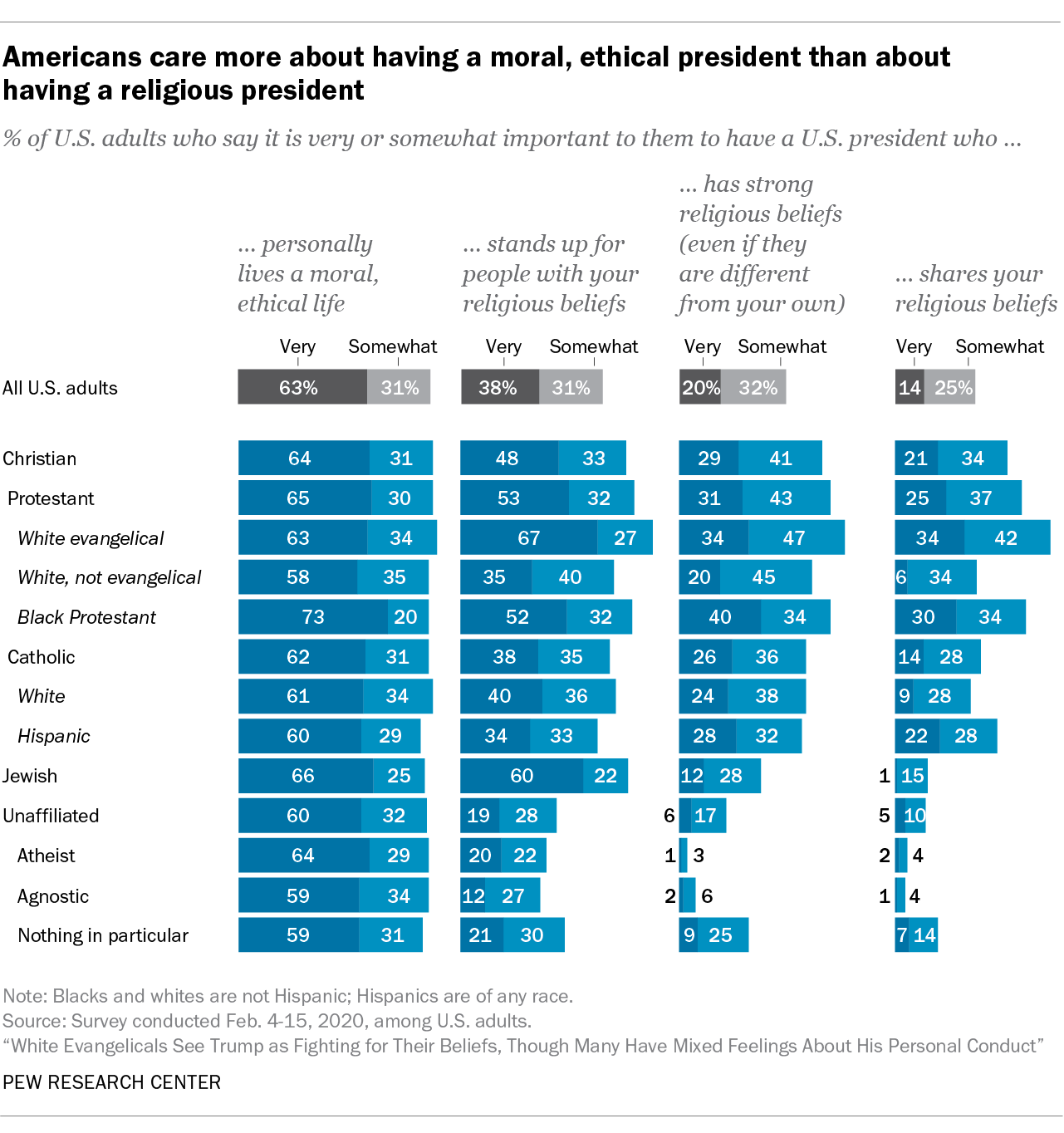
The character of the person who occupies the Oval Office matters to the vast majority of Americans. Across party lines and religious groups, roughly nine-in-ten or more say it is either somewhat or very important to have a president who lives a moral, ethical life. But Democrats and those who lean toward the Democratic Party are more likely than Republicans and Republican leaners to say it is “very” important (71% vs. 53%), according to a recent Pew Research Center survey.
Fewer Americans (52%) say it’s either somewhat (32%) or very (20%) important for a president to have strong religious beliefs, even if those beliefs are different from their own. But Republicans place more of a premium on having a president who is religious: About two-thirds of Republicans (65%) say this trait is at least somewhat important, compared with four-in-ten Democrats who say this (41%).

How we did this
The findings in this post are drawn from a recent survey exploring the intersection of religion and politics in the United States. The survey of 6,395 U.S. adults was conducted Feb. 4 to 15, 2020. All respondents to the survey are part of Pew Research Center’s American Trends Panel (ATP), an online survey panel that is recruited through national, random sampling of residential addresses. This way nearly all U.S. adults have a chance of selection. The survey is weighted to be representative of the U.S. adult population by gender, race, ethnicity, partisan affiliation, education and other categories. For more, see the ATP’s methodology.
Here are the questions used for the report, along with responses, and its methodology.
This contrast dovetails with the fact that most religious “nones” are Democrats, and that this group has been growing more quickly in the Democratic Party than in the GOP.
The questions explored in this analysis, part of a survey conducted Feb. 4 to 15, did not mention President Donald Trump or any other president by name. However, other questions in the survey asked about Trump specifically, including whether respondents consider him to be morally upstanding, honest or religious. Data from those sections of the survey show that Republicans are more likely than Democrats to say that “morally upstanding” and “honest” describe Trump at least fairly well. Republicans are also more likely to view Trump as at least somewhat religious. (For the full set of findings, read the report.)

Generally speaking, when it comes to traits that are important for a president to have, Americans care less about having a president who shares their religious beliefs than they do about having one who stands up for their religious beliefs. Four-in-ten U.S. adults (39%) say it’s at least somewhat important for a president to share their religious beliefs – though Republicans (53%) are about twice as likely as Democrats (27%) to say that this matters.
But when asked how important it is to have a president who “stands up for people with your religious beliefs,” seven-in-ten U.S adults (69%) say this is at least somewhat important. Majorities of Republicans and Democrats hold this view; however, more Republicans than Democrats say this is at least somewhat important to them (79% vs. 60%).
In addition to partisan differences, there also are some differences by religious affiliation in how people answer these questions. While majorities in all religious groups analyzed here say it’s important to have a president who lives a moral and ethical life, black Protestants stand out for saying this trait is very important (73%).
Meanwhile, white evangelical Protestants, Jews and black Protestants are the only religious groups in which half or more say that it’s very important for a president to stand up for people with their religious beliefs.
Across most religious groups included in the analysis, fewer say it is very important for a president to either have strong religious beliefs, even if these differ from their own, or for a president to share their religious beliefs.
